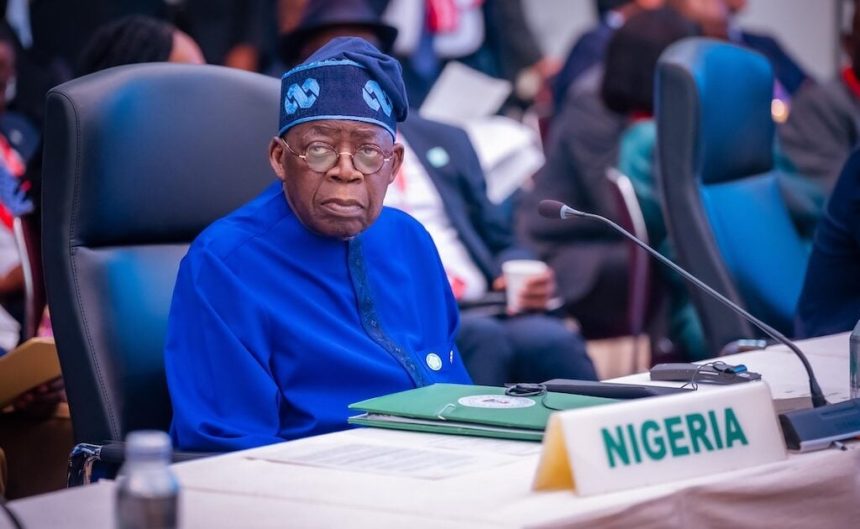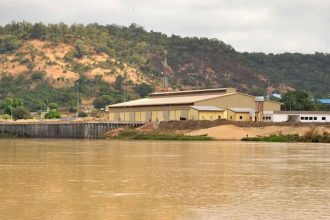The Presidency on Friday confirmed that President Bola Tinubu has approved a 15 per cent import tariff on petrol and diesel, describing the policy as a strategic step to stimulate local refining and strengthen Nigeria’s energy independence.
According to a statement by the Special Adviser to the President on Media and Public Communications, Sunday Dare, on his official X handle on Friday, the new policy is “a bridge, not a burden,” aimed at transforming Nigeria’s petroleum landscape and securing long-term economic stability.
He described the policy as a strategic measure to end Nigeria’s dependence on imported fuel and accelerate the country’s path to energy self-sufficiency.
“It’s no longer news that President Bola Ahmed Tinubu has approved a 15 per cent import duty on petrol and diesel, a bold and strategic move aimed at reshaping Nigeria’s energy landscape,” Dare wrote.
He explained that for years, Nigeria had depended heavily on imported fuel despite being one of the world’s leading crude oil producers, a situation that drained foreign exchange, hindered job creation, and stifled local refining investments.
“For years, the nation has depended heavily on imported fuel despite being a leading crude oil producer, draining foreign exchange and exporting jobs that should have been created at home. This new policy is designed to reverse that trend by encouraging local refining, boosting domestic capacity, and ensuring that Nigeria’s oil wealth translates directly into national prosperity,” the statement added.
Dare said the policy seeks to make imported products less competitive while tilting the market in favour of locally refined fuel from the Dangote Refinery, Port Harcourt Refinery, and modular plants under construction across the country.
“By making imported fuel less competitive, the government is tilting the market in favour of local refineries such as Dangote and other modular plants, laying the groundwork for a self-sustaining and resilient energy sector,” he stated.
He added that as domestic refining ramps up, supply will strengthen, and pump prices are expected to stabilise over time. The policy, according to him, will also stimulate industrial activity, create jobs, and attract fresh investments into the downstream petroleum value chain.
“As local refining ramps up and supply strengthens, prices are expected to moderate while jobs, investment, and industrial activity expand. This policy is therefore not a burden, but a bridge, from dependence to independence, from vulnerability to strength,” Dare said.
The presidential aide’s comment marks a departure from the position of petroleum marketers, who have warned that the pump price of Premium Motor Spirit, popularly known as petrol, could rise above N1,000 per litre following President Bola Tinubu’s approval of a 15 per cent ad-valorem import tariff on fuel imports.
The new policy, which takes effect after a 30-day transition period expected to end on 21 November 2025, is part of the government’s strategy to protect local refiners and reduce the influx of cheaper imported products that threaten domestic refining investments.
PUNCH Online had earlier reported that Tinubu approved the introduction of a 15 per cent ad valorem import duty on petrol and diesel imports into Nigeria.
In a letter dated October 21, 2025, reported publicly on October 30 2025, and addressed to the Attorney-General of the Federation and Minister of Justice, the Federal Inland Revenue Service and the Nigerian Midstream and Downstream Petroleum Regulatory Authority, Tinubu directed the immediate implementation of the tariff as part of what the government described as a “market-responsive import tariff framework.”
However, marketers say the move could backfire and push retail prices beyond the reach of average Nigerians.
Commenting in a telephone interview on Thursday, multiple depot operators with knowledge of the matter, who spoke on condition of anonymity, said the decision could further raise the price of petrol, which already sells for around N920 per litre, in many parts of the country.
“As it is, the price of fuel may go above N1,000 per litre. I don’t know why the government will be adding more to people’s suffering,” one of the depot operators said.
The National Vice-President of the Independent Petroleum Marketers Association of Nigeria, Hammed Fashola, also agreed that the tariff had its implications, saying it might lead to a price surge.
Fashola said the policy had both positive and negative effects, adding that it could discourage importation while promoting local refining.
The IPMAN leader opined that some marketers might perceive it as an opportunity to monopolise the sector in favour of Dangote and a few other refineries.
“The 15 per cent tariff on imported fuel has its own implications. Maybe the price will go up, and equally, it will discourage importers from bringing in fuel if it becomes too costly.
“But it has both negative and positive effects on the sector. I see that the government is trying to protect local refiners, but it will have its own implications because people will see it as a way of monopolising the industry for certain people. At the same time, the government aims to protect the local refiners.”
PUNCH Online reports that the latest data from the Nigerian Midstream and Downstream Petroleum Regulatory Authority indicate that petrol imports still accounted for about 69 per cent of the country’s total fuel demand over the 15 months between August 2024 and October 10, 2025.









